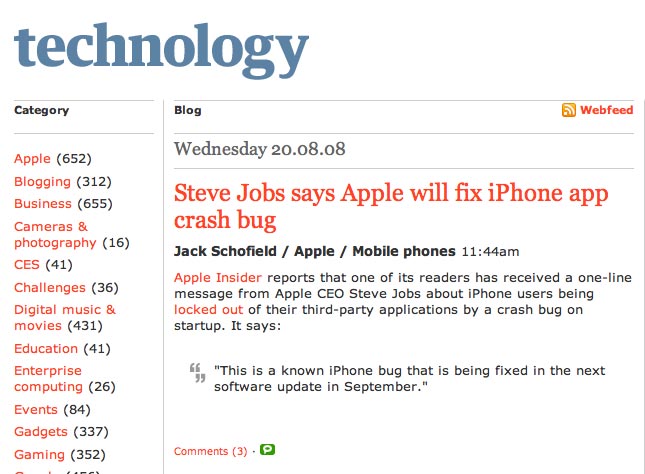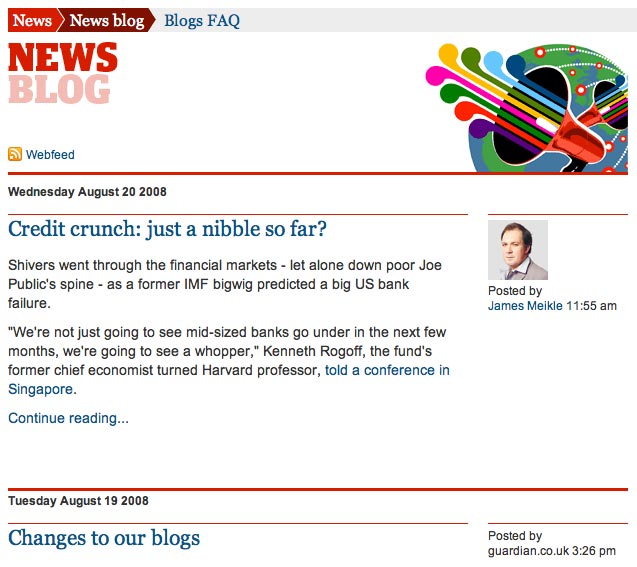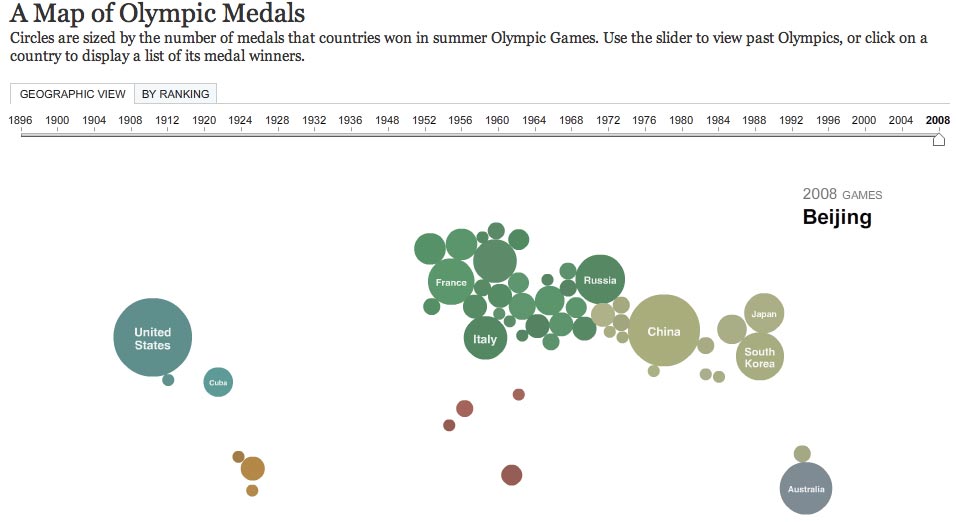The Guardian is moving its blogs onto its new platform, bringing them in line with the rest of the recently redesigned site.
The move will be completed in two stages starting with 14 titles, including its Lost in Showbiz and news blogs, an announcement on the Inside Guardian blog said. The remaining sites will move over next month.
Once switched the blogs will boast new colours and design features (see the right-hand screenshot below), including improved navigation and links to the rest of Guardian.co.uk.


Keywords linking blog posts to related content across the site will be added – a feature previously unavailable on the blogs platform.
Blogs will also be relocated to their sections – e.g. the politics blog in the politics channel – rather than housed in a separate blogs section.
The new blogs will also share features introduced across the rest of the redesigned site, including the option to share posts by Digg, del.icio.us etc, and a widget showing the most-linked to Guardian content.
Blog posts will now also be included in the site’s search.
Changes to the commenting function on the site’s blogs have also been made – the biggest change being the introduction of user profiles.
“For a long time, we and many other sites operated a content-driven model which meant that user comments were only associated with – and displayed alongside – a particular content item. The creation of user profiles reveals our growing community-driven approach, recognising that just as every guardian.co.uk author gets a contributor page in which their contributions are archived so that their participation can be explored across topics and over time, so should our users,” said Meg Pickard, head of communities and user experience for Guardian.co.uk, in a blog post
Additional features will be added to user profiles over time, added Pickard, and experiments with the layout of comments beneath blog posts are ongoing.
Basic formatting, such as creating block quotes and links, is also now possible on blog post comments.
The new features have previously been trialled on the site’s Comment Is Free platform and use social media firm Pluck’s commenting technology.



